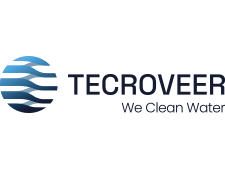PEPSICO: Pivoting Towards a Sustainable SA Food System
One of the world’s leading food and beverage companies, PepsiCo products are enjoyed by consumers more than one billion times a day in more than 200 countries and territories around the world. In South Africa, its strategic end-to-end transformation – PepsiCo Positive – puts sustainability and human capital at the centre of value creation and growth, inspiring positive change for planet and people.
Across South Africa, whether at breakfast lunch or dinner, at the gym or on the field or in the office or on the go, it is likely that it is a PepsiCo product by which hunger or thirst will be sated or slaked. “We refresh, restore and rejuvenate our consumers all day, every day with our key brands,” PepsiCo says, of a peerless product portfolio which, in South Africa, translates to a plethora of iconic brands such as Simba, Lay’s, and White Star.
“Since PepsiCo first entered South Africa in 1997 with an investment into Simba, our operations have reflected a strong commitment to South Africa’s people, communities and economy,” the company asserts, with approximately 12,000 South Africans employed across multiple sites including three corporate offices, over 40 production facilities and approximately 70 distribution and warehouse facilities.
“PepsiCo is committed to driving inclusive growth for South Africa as we work to build a more sustainable food system for the country,” it stresses.
WATER INITIATIVES
The establishment of the R600-million Kgodiso Development Fund embodies entirely this ethos, supporting the broad socioeconomic imperatives of education, SMMEs, emerging farmers and enterprise development over five years. “This will include a PepsiCo-led initiative to create a food innovation ecosystem for South Africa,” the company furthers.
PepsiCo South Africa has recently pledged to drive its commitment to water stewardship in the country, signifying its dedication to sustainable growth, community well-being and environmental responsibility, in recognition of the critical role water plays in the food system and its broader impact on the environment and communities.
“Our water stewardship journey is rooted in the belief that water is not just a vital component of our business but a lifeline for communities,” commented Steven Wolfaardt, PepsiCo South Africa Sustainability Lead. “We are collaborating with local partners and non-governmental organisations to launch community-driven projects that enhance water access, quality and sustainability.”
Empowering poorer communities through water initiatives has been a critical arm of PepsiCo South Africa’s sustainability efforts, investing significantly to support access to safe water, sanitation, and hand-washing facilities across provinces in South Africa through strategic partnerships with the National Business Initiative, the Water Research Institute, and Save Our Schools.
“These initiatives encompass the construction of resilient water infrastructure, educational programmes on responsible water usage, and the promotion of water conservation practices among local residents,” Wolfaardt adds.
As a member of Alliance for Water Stewardship (AWS), PepsiCo South Africa views water stewardship as a collective effort requiring increased collaboration, advocacy, idea-sharing, and investment to address water insecurity, Wolfaardt stipulates. “At PepsiCo, we remain committed to ensuring long-term, sustainable water security, an essential element in building a sustainable food system for our business and the broader community.”
PEPSICO POSITIVE
As a global food and beverage leader, PepsiCo is acutely aware that climate change is the most pressing challenge of the twenty-first century, and perhaps the greatest, on a truly global level, that humankind has ever faced. Equally, however, PepsiCo South Africa recognises its own role in setting the standard in acting to address its impacts, as it sets about aiming to source and generate 100% of its electricity needs through renewable energy by 2030.
Taking actions such as adopting more energy-efficient manufacturing processes and shifting to renewable electricity, PepsiCo Positive places sustainability at the centre of how the company will create growth and value by operating within planetary boundaries and inspiring positive change.
“We are also advancing our sustainability agenda by further reducing carbon emissions in our own operations and supporting our business partners on their journey by sharing best practices, building capabilities and collaborating on solutions,” says Wolfaardt.
Significant progress has already been made in this regard in South Africa: current installed capacity at 12 production sites and two distribution centres stands at 9.8 MWp, with total annual electricity generation amounting to 10,590,000 kwh and several new installations underway to join those recently having come online.
“We’re inspiring people through our brands to make choices that create more smiles for them and the planet,” PepsiCo South Africa emphasises. “We want to achieve net-zero emissions across our value chain by 2040, and, by 2030, reduce our greenhouse gas emissions by more than 40%, doubling our prior climate goal, as PepsiCo continues to accelerate its renewable energy commitment by investing in more partnerships and new technologies designed to create positive outcomes for the planet and people.
“We’re building upon the history and progress we’ve made since PepsiCo was founded in 1965 and creating an even stronger foundation for the decades ahead,” the company concludes. “Achieving our vision requires that we continuously challenge ourselves to become faster, stronger and better, leveraging our scale, reach and expertise across the areas where it can have the greatest impact.”

